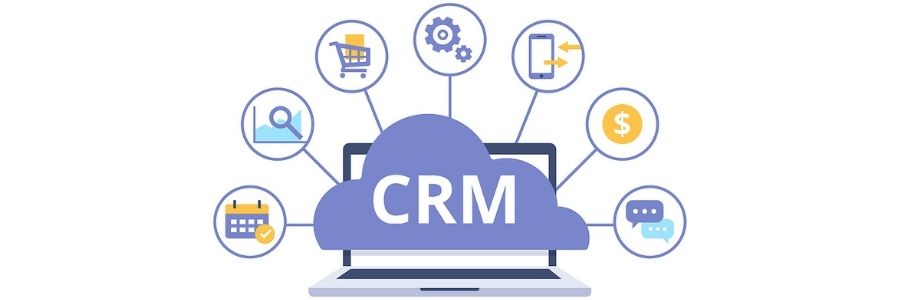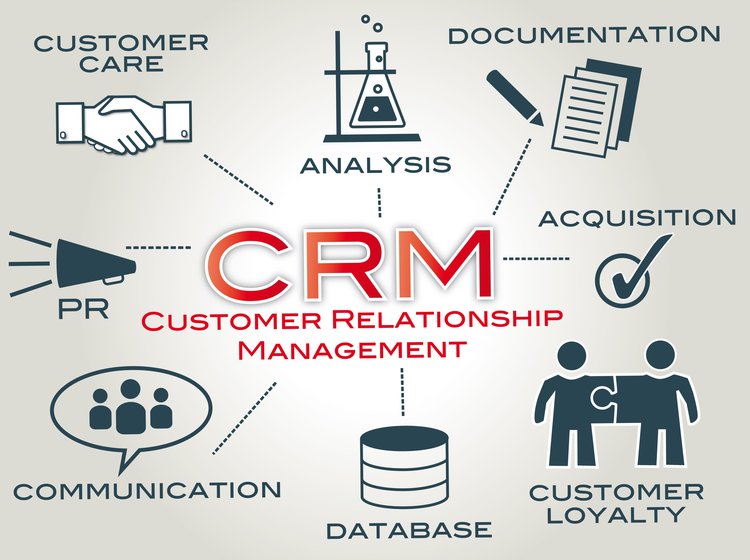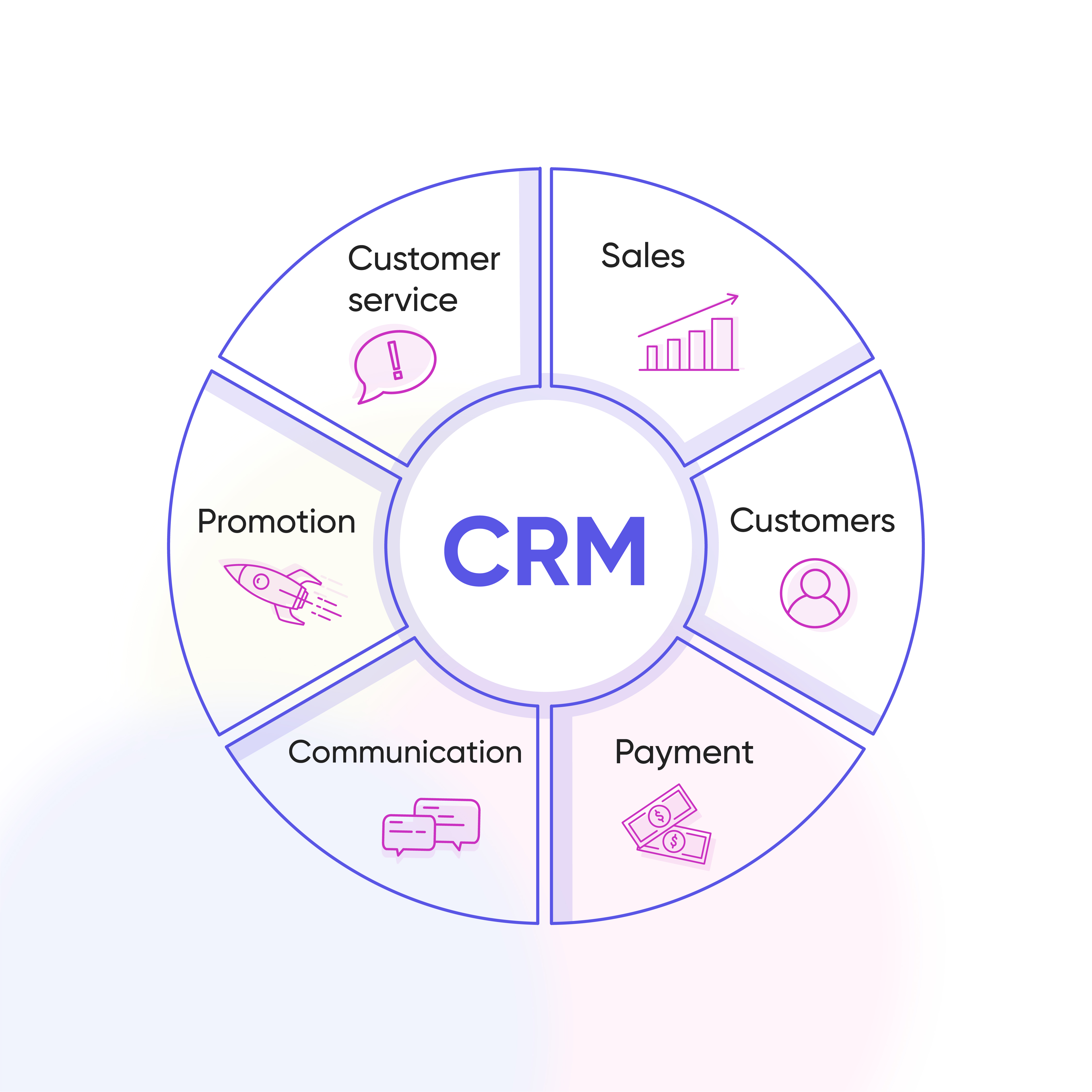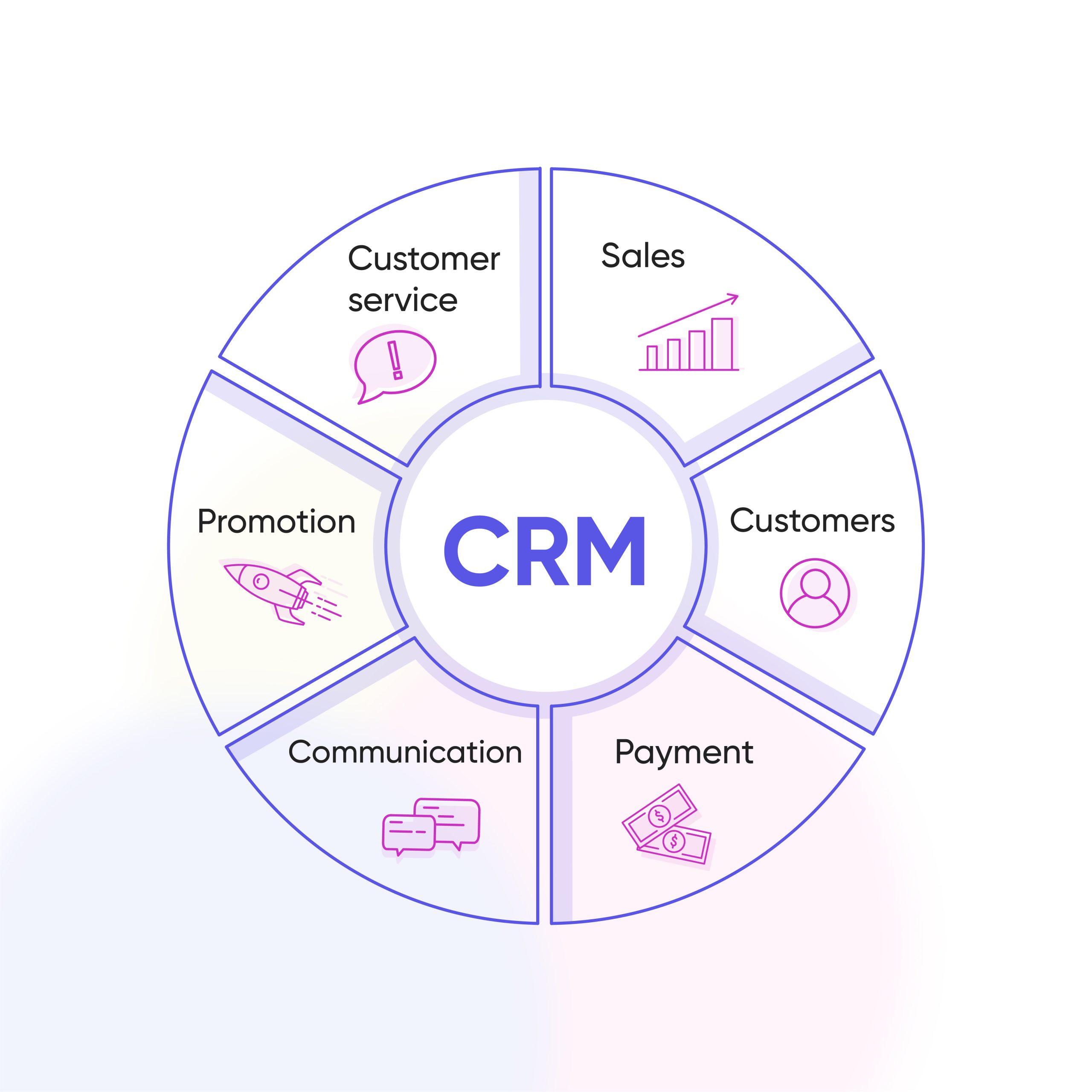Crm and accounting for small business – In the competitive world of small businesses, integrating Customer Relationship Management (CRM) and accounting software is the key to unlocking efficiency, productivity, and growth. By seamlessly connecting these two vital systems, you gain a comprehensive view of your customers, streamline operations, and make informed decisions that drive your business forward.
From managing customer interactions to tracking financial performance, CRM and accounting software work together to provide a holistic approach to small business management. Embrace the power of integration and empower your business to reach new heights.
Customer Relationship Management (CRM) Integration for Small Businesses

Integrating Customer Relationship Management (CRM) software with accounting software can significantly enhance operations for small businesses. By streamlining customer data management, automating tasks, and providing valuable insights, CRM integration empowers small businesses to build stronger customer relationships, increase efficiency, and drive growth.
Benefits of CRM Integration
- Centralized customer data:CRM systems provide a central repository for all customer information, including contact details, purchase history, and interactions.
- Automated workflows:CRM integration automates repetitive tasks such as lead generation, email marketing, and appointment scheduling, freeing up valuable time for other tasks.
- Improved customer insights:CRM systems track customer interactions, providing valuable insights into their preferences, behaviors, and pain points.
Choosing the Right CRM System
Selecting the right CRM system for a small business is crucial. Consider the following factors:
- Business size and industry:Choose a CRM system that is tailored to the size and industry of your business.
- Integration capabilities:Ensure that the CRM system seamlessly integrates with your accounting software.
- Ease of use:The CRM system should be user-friendly and easy to navigate for all team members.
Accounting Software for Small Businesses
Managing your finances is crucial for the success of your small business. Accounting software can help you stay organized, track your income and expenses, and make informed financial decisions. When choosing accounting software, there are a few key features to look for:
Ease of use:The software should be easy to navigate and understand, even if you don’t have an accounting background.
Affordability:There are a variety of accounting software options available at different price points. Choose one that fits your budget.
Scalability:As your business grows, you’ll need accounting software that can grow with you. Make sure the software you choose can handle your current and future needs.
Types of Accounting Software
There are two main types of accounting software: cloud-based and desktop-based.
- Cloud-based accounting softwareis hosted online, so you can access it from anywhere with an internet connection. This type of software is typically more affordable than desktop-based software, and it’s easier to update and maintain.
- Desktop-based accounting softwareis installed on your computer. This type of software is typically more expensive than cloud-based software, but it offers more features and customization options.
Popular Accounting Software Options
Here is a table comparing the features and pricing of popular accounting software options:
| Feature | QuickBooks Online | Xero | FreshBooks |
|---|---|---|---|
| Ease of use | Excellent | Excellent | Good |
| Affordability | $25/month | $30/month | $15/month |
| Scalability | Good | Good | Fair |
Benefits of Using CRM and Accounting Software Together
Integrating Customer Relationship Management (CRM) and accounting software can significantly enhance business efficiency for small businesses. By seamlessly connecting these two crucial systems, businesses can gain a comprehensive view of their customer interactions, sales pipeline, and financial performance.
Streamlined Data Management
Integrated CRM and accounting software eliminate the need for manual data entry and reconciliation, reducing the risk of errors and saving valuable time. Customer data, such as contact information, purchase history, and communication logs, can be automatically synced between the two systems, providing a unified view of customer interactions.
Improved Sales Forecasting
CRM software tracks customer interactions and sales activities, providing valuable insights into customer behavior and sales trends. This data can be integrated with accounting software to create accurate sales forecasts, enabling businesses to plan their operations and resource allocation more effectively.
Enhanced Customer Service
Integrated CRM and accounting software allow customer service representatives to access a complete customer profile, including their purchase history, communication history, and any outstanding invoices. This information empowers customer service teams to provide personalized and efficient support, improving customer satisfaction and loyalty.
Case Study: XYZ Company
XYZ Company, a small manufacturing business, implemented an integrated CRM and accounting software solution. The integration allowed the company to streamline its sales process, reduce manual data entry, and gain a better understanding of customer behavior. As a result, XYZ Company experienced a 15% increase in sales and a 20% reduction in operating costs.
Best Practices for Implementing CRM and Accounting Software: Crm And Accounting For Small Business

Integrating CRM and accounting software can significantly enhance your small business’s efficiency and productivity. Here’s a step-by-step guide to help you implement these systems successfully:
Define Your Business Goals
Start by clearly defining your business goals and objectives. This will help you determine the specific features and functionality you need from your CRM and accounting software. Consider your target audience, business processes, and growth plans.
Choose the Right Software
Thoroughly research and compare different CRM and accounting software options. Consider factors such as ease of use, scalability, integrations, and cost. Look for software that aligns with your business goals and provides the necessary functionality.
Prepare Your Data
Before implementing the software, ensure that your data is organized and accurate. This includes cleaning up your customer and financial data, eliminating duplicates, and ensuring consistency. Clean data will improve the accuracy and efficiency of your CRM and accounting systems.
Integrate Your Systems
Once you have selected and installed your software, integrate them to enable seamless data flow between your CRM and accounting systems. This will allow you to automate tasks, reduce errors, and gain a comprehensive view of your business.
Train Your Team, Crm and accounting for small business
Proper training is crucial for successful implementation. Provide your team with comprehensive training on both the CRM and accounting software. Ensure they understand the benefits, functionality, and best practices for using the systems effectively.
Monitor and Evaluate
After implementation, regularly monitor and evaluate the performance of your CRM and accounting software. Track key metrics, such as sales conversion rates, customer satisfaction, and financial performance. Make adjustments as needed to optimize your systems and maximize their benefits.
Common Challenges and Solutions
During implementation, you may encounter challenges such as data migration issues, user resistance, and integration difficulties. To address these challenges, ensure data accuracy, provide ongoing training and support, and work closely with your software vendors for technical assistance.
Tips for Success
To get the most out of your CRM and accounting software investment:
- Involve key stakeholders in the implementation process.
- Establish clear roles and responsibilities for data management.
- Use the software consistently and leverage its features to automate tasks.
- Regularly review and update your data to maintain accuracy.
- Seek professional assistance from consultants or software vendors if needed.
End of Discussion

Integrating CRM and accounting software is not just a technological upgrade; it’s a strategic investment in the future of your small business. By harnessing the synergy between these systems, you gain a competitive edge, increase profitability, and lay the foundation for sustainable growth.
Embrace the transformative power of CRM and accounting integration and watch your business soar.
